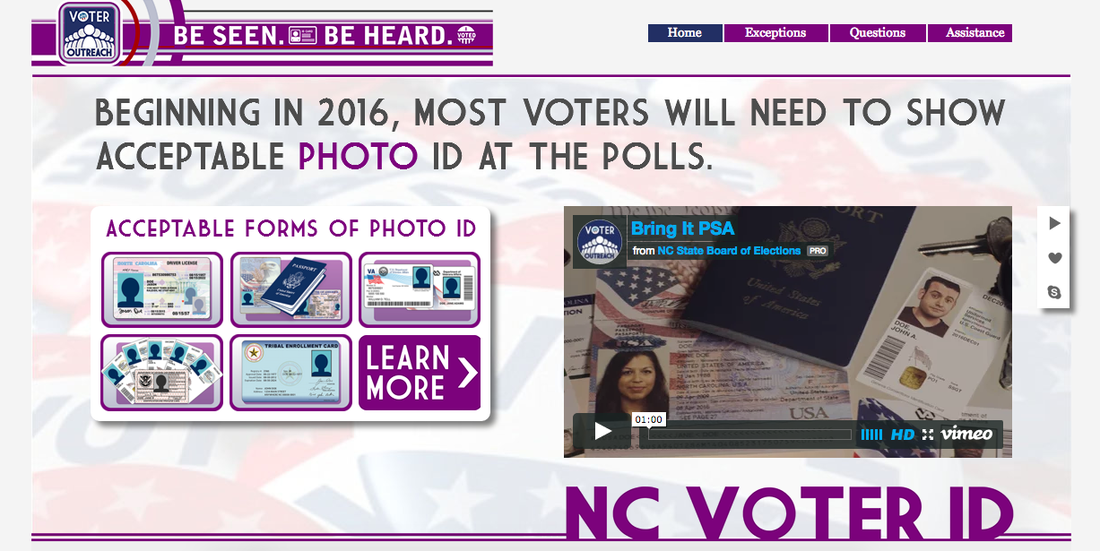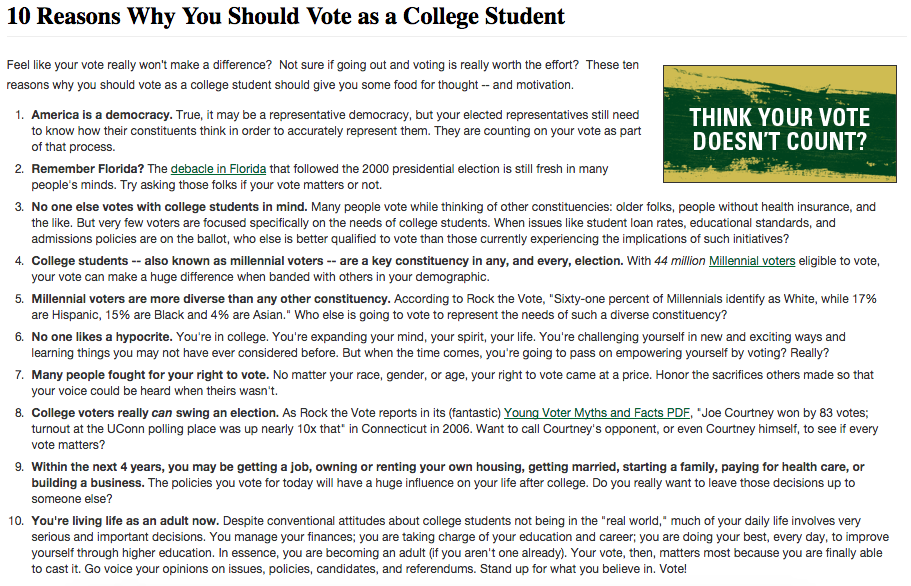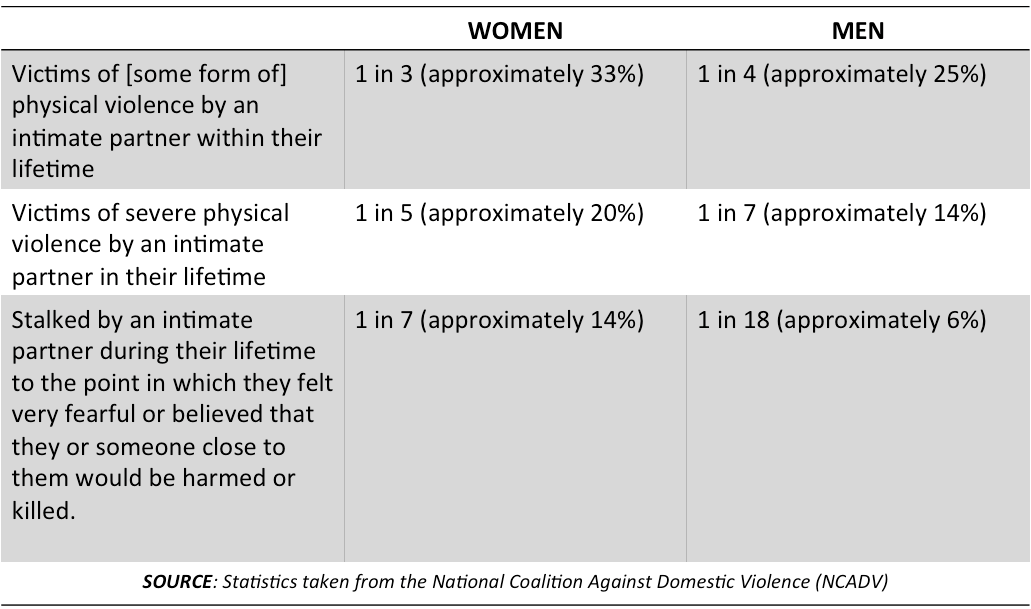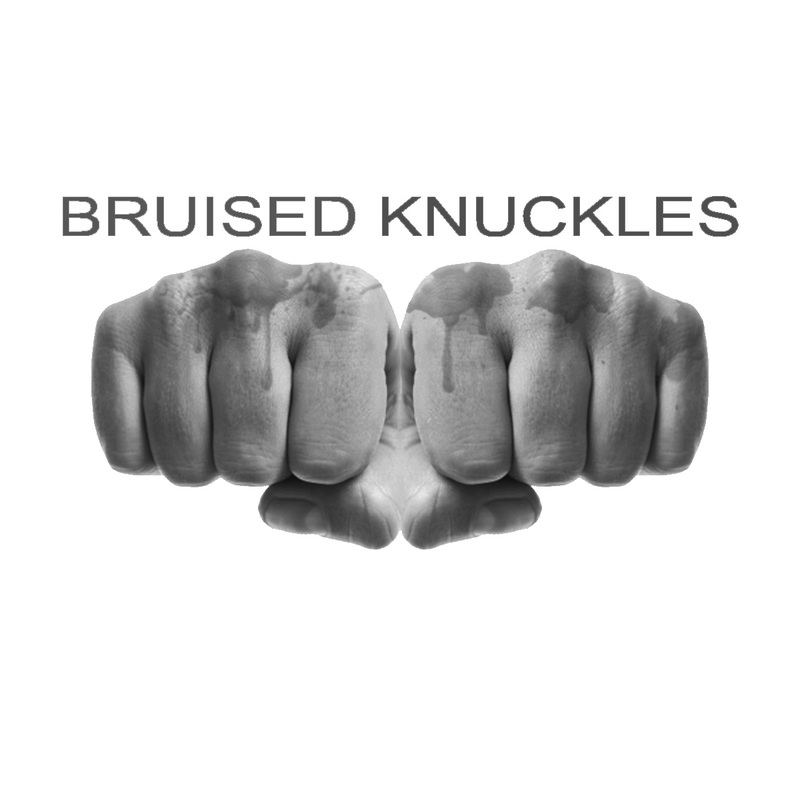|
Recently, the Eastern Connecticut State University Intercultural Center and Women's Center sponsored a talk by Alicia Garza, one of the co-founders of the #BlackLivesMatter movement.
Opponents of the movement expect rowdy hostile crowds and troublemakers ready to riot. The university had multiple police officers stationed near the auditorium in full uniform. I was seated near the outer edge of the auditorium and could occasionally hear the police radios. This only added to the necessity of this talk. The audience was respectful and quiet, but there was urgency in the air. Garza spoke passionately, but still appeared friendly and gracious. She honestly seemed to care about the students there to hear her speak, which I found remarkable, The talk opened with Garza asking the crowd to volunteer current world events, a really great way to start on an inclusive note and to see what the audience was thinking about. Then, Garza began to address how #BlackLivesMatter was tied into almost all of them. This allowed for the transition into why #AllLivesMater was unnecessary. Garza addressed that, yes, obviously, all lives matter on a fundamental level, but right now, clearly all lives don't matter, and that we as a society need to focus. Garza spoke about wanting to "ensure that the world we live in is a world that's equatable' and that #BlackLivesMatter was partially a response to the general violence against black males and partially a response to a social context where black lives don't matter. Garza urged to stop perpetuating the amnesia, remember every single tragedy that has lead us to where we are. This acknowledgement will address the majority/minority culture we have created and the uneven power structures that service the white heteropatriarchy. This will allow for people to see that a good amount of that power is unearned and undeserved. Garza presented the devastation of Hurricane Katrina in 2005 as a perfect example of privilege in the face of a disaster, an 'unnatural disaster.' So many lives were lost because New Orleans was one of the most segregated cities in the United States. There were at least 25% of black people living in poverty. The United States Government cut costs by neglecting the levies, which lead to over 50 breeches. Economic disparities matter, they cost lives. It seems impossible that the racial climate in New Orleans had nothing to do with the level of neglect the infrastructure was left in. Next, Garza began to list off some of the 'ruptures in the consciousness of this nation,' highlighting Sean Bell, Cece McDonald, Marissa Alexander, and the New Jersey 4 (and then some.) These examples show the minimization and erasure of violence against people who aren't white cisgender straight males. When examining the history of the United States, Garza pointed out that "anti-black racism is in the DNA of this nation, and [this violence occurs] in a context where we live in a nation that suffers from great amnesia.' One of the more obvious examples here is George Zimmerman. The media referred to this as the Trayvon Martin trial. Garza pointed out that Trayvon Martin wasn't on trial, Trayvon Martin was dead. George Zimmerman was the one on trial. This small change in phrasing allowed the media to frame the case in a way that questioned if a dead child was guilty. These tailored narratives reveal privilege. This lead back to #BlackLivesMatter because these 'ruptures in the narrative around who's life is worth living.' When the jury said that Trayvon's life didn't matter, Garza said she felt she needed to re-inject this community with humanity. Garza didn't want this to be a verdict on everyone's lives. Garza said she 'want[ed] humanity for our people, and that when black lives matter, we have a better shot at all lives mattering, and that black people are deserving of humanity.' For example, more than 20 trans women of color have been murdered so far in 2015, and that doesn't even scratch the surface of the trans women of color who were murdered and then misgendered, or weren't even reported. We can't advocate for these women, and the trans community if we don't 'create space to have critical conversations of what our world can and should look like.' Garza urges us to talk about race, come together, develop a vision together, creating and shifting the power, changing the power dynamic by exercising collective power in order to see the changes we want to see, noticing the discomfort when things begin to shift. Garza compared the civil rights movement to a river than ebbs and flows and nodded towards all the people doing work that isn't seen. Garza allowed the audience to ask questions and share stories, and a young girl volunteered that she and her sister had deep mistrust in the police after an incident where she alleged that they used unnecessary force and violently took her and her sister down. Garza acknowledged how difficult it is to have faith in the possibility of change and addressing this change in a dynamic where trusting the police, especially as a woman of color (with deeply troubling experiences with (alleged) police brutality) is hard. Garza said definitively that #BlackLivesMatter is not an anti-police movement, but calls for accountability and a new system. Garza tapped into the old cliche that 'when good people say nothing, you can't tell the difference.' Garza urged the good people to speak up, calling for 'justice for the wronged and harmed and to force change or else there is no incentive to change.' And yes, in a power structure that serves those at the top, why would there be incentive to change and lose some of the power (and money) you have? In order to 'reverse generations of structural discrimination,' obviously, in plain terms, something's gotta give. Applauding those in power who start to acknowledge and attempt to address these disparities is a start. As yes, I realize that we shouldn't have to applaud them, that this is what they should be expected to do, however these people face great personal loss coming forward, and we need to recognize this. Another student asked Garza how it was possible to practice such deep self control in the context of such deep and systematic injustice. Garza laughed and noted that time for the self was key, and to also practice being regenerative rather than destructive, as well as reconnecting yourself to your purpose and remembering your vision, what your endgame is. After the talk, Garza was practically ambushed by students with hugs, and selfies, and craving a chance to tell their stories to someone who cared. Garza is a bit of a personal hero, so I hung back, letting everyone else take their moment. We ran out of time but I was able to walk and interview on Garza's way out. I was nervous as hell and word-vomited (sorry about that, but like come on, the co-founder of a giant social justice movement? you'd fangirl too) a little bit, but I was able to ask how other oppressed groups could take #BlackLivesMatter's lead. Garza said that #BlackLivesMatter was the key, when social change happens, if we push hard enough, it's for everyone. So now this leaves you to ask yourself, as Garza asked, 'which side of this do you want to be on?' Follow Garza on Facebook and Twitter, tweet with the hashtag #BlackLivesMatter, follow Black Lives Matter and begin to question the narrative you've been fed.
0 Comments
If you’re 18-years or older in the United States, you can legally vote. But in 2014, only 36.4%of eligible voters cast in their ballots, according to the Washington Post. This was the lowest voter turnout in the U.S. since WWII. If you aren’t ashamed of yourself yet, you should be. You learn in school that voting is important (really important). You’re not forced to vote like in some countries; it’s entirely voluntary. As a college student, the American political system is very disheartening. You are disconnected from your state representatives, and you may have even lost your interest in politics altogether. You need to abandon this mindset; forget everything you think you know about voting because we’re going to start from scratch here. According to the US Government: “One of the most important rights of American citizens is the franchise — the right to vote. Originally under the Constitution, only white male citizens over the age of 21 were eligible to vote. This shameful injustice has been corrected and voting rights have been extended several times over the course of our history. Today, citizens over the age of 18 cannot be denied the right to vote, regardless of race, religion, sex, disability, or sexual orientation. However, in every state except North Dakota, citizens must register to vote, and laws regarding the registration process vary by state.” Voting is one of the very few platforms in the U.S. where everyone over 18 is equal, regardless of your race or ethnicity, sex or gender, sexual preference, disability, religion, job, income, socioeconomic status, etc. It doesn’t matter who you are; you are on equal grounds to everyone 18-years or older around you. Unfortunately, this statement is no longer true. In case you haven’t been watching politics in the past few years (you’re not alone), I’ll catch you up. According to the American Civil Liberties Union (ACLU), “Since 2008, states across the country have passed measures to make it harder for Americans—particularly black people, the elderly, students, and people with disabilities—to exercise their fundamental right to cast a ballot. These measures include voter ID laws, cuts to early voting, and purges of voter rolls.” What does this mean? Some politicians are making it harder for some populations of Americans to vote. You can hear more about this issue in the video below, entitled “Election 2012: Let People Vote” by ACLUVideos. Of the 22 states that passed voter restriction laws in 2014, 18 of them were entirely Republican-controlled bodies (according to this article from the American Prospect). According to a study conducted at the University of Massachusetts in Boston, "'restrictions were more likely to pass ‘as the proportion of Republicans in the legislature increased or when a Republican governor was elected.’ After Republicans took over state houses and governorships in 2010, voting restrictions typically followed party lines” (full article here). There is a racial aspect to voter suppression laws too. These laws are used to dissuade (or even stop) minorities from voting in state or national elections. The Washington Post wrote that “restrictive proposals were more likely to be introduced in states with larger African-American and non-citizen populations and with higher minority turnout in the previous presidential election.” Some politicians and government bodies are taking very deliberate action to restrict some groups of people from voting. These politicians are also targeting college (and college-aged) students. The New York Times wrote about several instances in North Carolina, Texas, and Ohio. (If you are unable to view the North Carolina website, a screenshot of of the website is copied below for convenience). College students and young voters make a huge difference in elections when they choose to go out and vote. The same New York Times article writes: “Nationally, voters under the age of 30 represent a big voting bloc. They cast more than 20 million votes in the 2012 presidential election, accounting for about 15% of the total, according to the Center for Information and Research on Civic Learning Engagement, a nonpartisan center at Tufts University. And in North Carolina, their turnout in 2012 was about 57%, among the highest in the country.” If you still need more reasons to vote, look at the 10 reasons below as outlined by UNC Charlotte: Your vote matters. You are living in the U.S., so the state and national policies affect you. You can’t escape politics, and if you’re unhappy with them, do something about it. Join a political movement. Find the issues that matter most to you, and find the candidates that share your views on those issues. Especially in this upcoming national election, your vote is going to be very important. The 2016 presidential election is going to be very important because of the diverse political beliefs in the running (as of right now). Candidates have proposed beliefs on free public college tuition, illegal immigrants, LGBT legislation, women’s health and rights, #BlackLivesMatter and police brutality, and many other domestic and foreign policies. If you want your beliefs to be heard, you need to vote. How? Ask yourself the following questions. 1. Are you registered to vote? If not, check out this website to learn how to register (it’s very easy to do so online). You can read about absentee ballots (and if this is the best option for you, especially if you’re in another state going to school and want to register to vote or are registered to vote in your home state), and find out what to do here. 2. Do you know who is running? If not, you need to read up on the different candidates and their platforms. You can do so through this article by the New York Times. Know where the candidates stand on issues that are important to you. If you’re unsure of who you most agree with (since there are so many candidates), take quizzes like I Side With and On the Issues, answering as honestly as you can and to the best of your abilities. These quizzes aren’t absolute, but they will tell you which candidate(s) should best match your beliefs. Also consider looking at the campaign websites for each of the candidates (which we will not link because there are too many and they are easy to find if you google them). If you don’t have the time to look at each individual website, The Atlantic has compiled a “cheat sheet” on all of the candidates. And 3. Do you know all of the important deadlines? If not, remember to look into your state’s deadlines for registering, the primaries, and the actual election. You can view them here and here. Always be weary of dates, since it’s going to be very important in this election that you register on time (if you haven’t already), and that you vote on time. There are politicians who are going to try to make it very difficult for you to vote, but it’s important that you do everything you can to be prepared. If you want to get involved with your candidate’s campaign (which is very easy to do), all you have to do is visit their websites and find the volunteering section. It should list contact information on how you can get more involved in the campaign (or simply make a donation). You can get involved by volunteering (calling phone numbers, talking to other voters, getting the candidate’s name out there), and you can become involved in fundraisers and rallies if you’re interested in that level of commitment. All you need to do is reach out to your candidate’s campaign team. I cannot stress this enough, this presidential election you need to vote. You need to vote for the candidate you best think should be president. The next 4 years are going to be very crucial to American (and global) politics. You have a voice, and you need to use it.
29-year old Iranian artist Atena Farghadani is currently facing 12 years and 9 months in prison after being arrested for her cartoon depicting the Iranian government as animals (image below). According to The Independent, Farghadani drew the cartoon in response to the Iranian government’s plans to outlaw voluntary sterilization and restrict access to contraception.
She will also be charged at a later date for shaking the hand of her lawyer, Mohammad Moghimi, when he visited her in prison shortly after her trial. According to the same article, “This led to them being charged with ‘indecent conduct’ and having an ‘illegitimate sexual relationship short of adultery.’”
It is difficult to understand the laws and cultural beliefs of countries outside of the Western world that do not share our collective beliefs. However in this situation, I believe the government is acting out of oppression rather than cultural belief. According to Elise Auerbach, the Iran country specialist at Amnesty International, and as quoted by the Huffington Post, “The laws on the books in Iran are a kind of arsenal or tool kit always available for use by the authorities in their efforts to suppress any form of expression they don’t approve of.” It is difficult to follow the trial, as the global media has not yet addressed it on a large scale. If you’re interested in reading more about this story, you can look at these articles by the Washington Post and Cartoonists Rights. If you want to get more involved in the campaign to free Farghadani, Cartoonists Rights have contact information for Iran’s permanent mission to the United Nations here, you can look at Amnesty International’s campaign, and you can look at the Facebook page.
NOTE: No images or articles mentioned in this post are our own, and are all linked to their corresponding sources. The image above is not our own, and is from here.
The Eastern Connecticut State University Women's Center and Campus Activities Board hosted the Palestinian American comic Maysoon Zayid on 11/4, and I found myself quickly converted to a fan. Zayid held one of the most influential TED Talks ever and was also the first person to preform standup in Israel and Jordan. Zayid also co-founded the New York Arab-American Comedy Festival. Zayid also has Cerebral Palsy, but isn't a Palsy Comic, she's a comic who just happens to have Palsy.
Forbes calls her one of the global faces of feminism, and they're right, but mostly, she's just hilarious. Zayid serves as a massive inspiration to feminists, and I highly suggest following her on twitter @MaysoonZayid or visiting her website or Facebook page ***WARNING: This post may contain themes and/or content that is triggering to some readers. Use caution when reading.*** I recently saw a video on YouTube (shown below), called “Extreme Domestic Abuse in Public! (Social Experiment)” by MoeandET. The video outlines a social experiment that involves two parts; the first with a male “abusing” a female in public, and the second with a female “abusing” a male in public. The first part (from 0:18 to 1:44) went as you would expect; people were very quick to intervene when the male was pushing the female around and yelling at her. Even with people reacting so quickly to recognize and intervene in the situation, domestic abuse is still very common for women in the U.S. According to the National Coalition Against Domestic Violence (NCADV), a woman in the U.S. is beaten or abused every 9 seconds. That’s about 6 women every minute, 400 women every hour, and 9,600 women every day. 1 in 3 women have been victims (or will be victims) of physical violence (of some type) by an intimate partner at some point in their lives. And, on average, national domestic violence hotlines receive more than 20,000 a day. The second part of the video (from 1:49 to 3:41) was a lot more disturbing. In the second part, the two roles were reversed, and the female began yelling at and hitting the male (a different male this time). I wasn’t surprised to see that no one interfered this time, and some onlookers were even smiling. That’s the problem. When a women is abused by a man, people are more likely to take it seriously (in terms of intervention and recognition) than when a man is abused by a woman. NCADV estimates that 1 in 4 men have been (or will be) victims of violence (of some type) in their lives. In case that doesn’t shock you (which it should), I’ve compared domestic abuse statistics between men and women below (all from NCADV); While there is an disproportionate number of female domestic abuse victims, men are still victims too. In order for our society to accept this reality, we need to abandon existing gender stereotypes and the notion that all men are and must be “masculine” and that “masculinity” is not subject to abuse. (Basically treat female and male victims of assault with the same respect and understanding.)
(If you, or someone you know, is a victim of domestic abuse, you can look at the following resources for help: -Find a domestic shelter near you here -Plan ahead here -Call the Domestic Abuse Hotline at one of these numbers; 1-800-799-7233 or 1-800-787-3224) But most importantly, always call 9-1-1 is you’re genuinely afraid for your life (and/or your pet’s, family’s, and/or children’s lives). NOTE: We are not affiliated with the YouTube channel or video featured in this post. We are also not affiliated with NCADV, and all quotes and statistics in this post were taken from their website. |
Archives
April 2020
Categories |





 RSS Feed
RSS Feed
